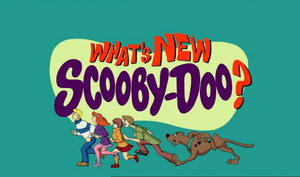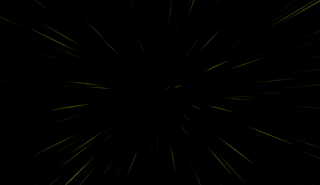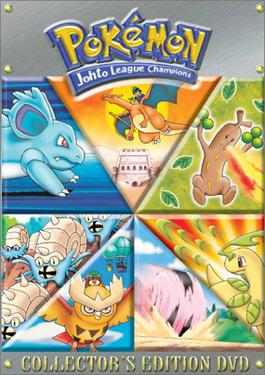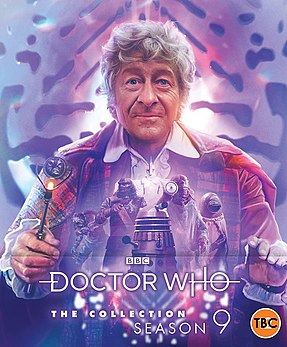
Absolutely Fabulous is a British television sitcom based on the French and Saunders sketch, "Modern Mother and Daughter", created by Dawn French and Jennifer Saunders. The show was created and written by Saunders, who also stars as one of the main characters with Joanna Lumley and Julia Sawalha.

Spaced is a British television sitcom created, written by and starring Simon Pegg and Jessica Stevenson, and directed by Edgar Wright, about the misadventures of Daisy Steiner and Tim Bisley, two twenty-something Londoners who, despite only having just met, decide to move in together after she gives up on squatting and he is kicked out by his ex-girlfriend. Supporting roles include Nick Frost as Tim's best friend Mike, Katy Carmichael as Daisy's best friend Twist, Mark Heap as lodger Brian who lives downstairs and Julia Deakin as landlady Marsha.

Michio Kaku is an American theoretical physicist, activist, futurologist, and popular-science writer. He is a professor of theoretical physics in the City College of New York and CUNY Graduate Center. Kaku is the author of several books about physics and related topics and has made frequent appearances on radio, television, and film. He is also a regular contributor to his own blog, as well as other popular media outlets. For his efforts to bridge science and science fiction, he is a 2021 Sir Arthur Clarke Lifetime Achievement Awardee.

Spearhead from Space is the first serial of the seventh season in the British science fiction television series Doctor Who, which was first broadcast in four weekly parts on BBC1 from 3 to 24 January 1970. It was the first Doctor Who serial to be produced in colour and the only one to be made entirely on 16 mm film.

What's New, Scooby-Doo? is an American animated television series produced by Warner Bros. Animation for Kids' WB. It is the ninth incarnation of the Scooby-Doo franchise that began with Scooby-Doo, Where Are You! and the first Scooby-Doo series in a decade, since A Pup Named Scooby-Doo ended in 1991 and the first since both the foreclosure of Hanna-Barbera studios and William Hanna's death in 2001.

In science fiction, hyperspace is a concept relating to higher dimensions as well as parallel universes and a faster-than-light (FTL) method of interstellar travel. Its use in science fiction originated in the magazine Amazing Stories Quarterly in 1931 and within several decades it became one of the most popular tropes of science fiction, popularized by its use in the works of authors such as Isaac Asimov and E. C. Tubb, and media franchises such as Star Wars.
The Stones of Blood is the third serial of the 16th season of the British science fiction television series Doctor Who, which was first broadcast in four weekly parts on BBC1 from 28 October to 18 November 1978. Part 4 was broadcast during the week of the show's fifteenth anniversary.

Starhunter is a Canadian science fiction television series that aired for two seasons. The series was produced in Canada by The Danforth Studios Ltd. in association with Alliance Atlantis with some photography in the United Kingdom. Grosvenor Park Productions UK Ltd. was the co-producer from the United Kingdom, and Le Sabre SA, an affiliate of Canal+, was the French co-producer, with major unofficial German participation by Das Werk.

"Blue Harvest" is the hour-long premiere of the sixth season of the American animated television series Family Guy and the first part of the series' Laugh It Up, Fuzzball trilogy. It originally aired on Fox in the United States on September 23, 2007. The episode is a retelling and parody of the 1977 blockbuster film Star Wars, recasting the show's characters as Star Wars characters, created with permission from Lucasfilm on the condition that the characters had to look exactly like they do in the movies. The plot follows Peter as he retells the story of Star Wars while the electricity is out in their house.

Pokémon: Master Quest is the fifth season of Pokémon and the fifth and final season of Pokémon: The Original Series, known in Japan as Pocket Monsters: Episode Gold & Silver. It originally aired in Japan from August 9, 2001, to November 14, 2002, on TV Tokyo, in the United States from September 14, 2002, to October 25, 2003, on Kids' WB. It was the first season of Pokémon to be digitally animated as opposed to cel animation, starting with the episode "Here's Lookin' at You, Elekid".

Pokémon: Johto League Champions is the fourth season of Pokémon and the fourth season of Pokémon: The Original Series, known in Japan as Pocket Monsters: Episode Gold & Silver. It originally aired in Japan from August 3, 2000, to August 2, 2001, on TV Tokyo, and in the United States from August 18, 2001, to September 7, 2002, on The WB.

The Yogi Bear Show is an American comedy animated television series and the first entry of the Yogi Bear franchise produced by Hanna-Barbera Productions that centers on the misadventures of forest-dwelling Yogi Bear in Jellystone Park. The show debuted in syndication on January 30, 1961 and ran for 33 episodes until January 6, 1962. Two other segments for the show were Snagglepuss and Yakky Doodle. The show had a two-year production run.

The tenth season of British science fiction television series Doctor Who began on 30 December 1972 with the tenth anniversary special The Three Doctors, and ended with Katy Manning's final serial The Green Death. This is the Third Doctor's fourth series, as well as fourth for producer Barry Letts and script editor Terrance Dicks.

The ninth season of British science fiction television series Doctor Who began on 1 January 1972 with Day of the Daleks, and ended with The Time Monster. This is the third series of the Third Doctor, played by Jon Pertwee, as well as the third to be produced by Barry Letts and script edited by Terrance Dicks.

The eighth season of British science fiction television series Doctor Who began on 2 January 1971 with Terror of the Autons and ended with The Dæmons featuring Jon Pertwee as the Third Doctor. This is the second of five series which Barry Letts produced consecutively and Terrance Dicks was the script editor.

The seventh season of British science fiction television series Doctor Who began on 3 January 1970 with Jon Pertwee's first story Spearhead from Space and ended with Inferno. The first season to be made in colour, it marked the beginning of Barry Letts's five seasons as series producer, but it has been described as "essentially devised" by his predecessor, Derrick Sherwin, who produced the opening story. The season sees the beginning of the Doctor's exile to Earth by the Time Lords and his attachment to UNIT as its scientific advisor.

The sixth season of British science fiction television series Doctor Who began on 10 August 1968 with the first story of season 6 The Dominators and ended Patrick Troughton's reign as the Doctor with its final story The War Games. Only 37 out of 44 episodes are held in the BBC archives; 7 remain missing. As a result, 2 serials are incomplete: only episode 2 of the 6-part story The Space Pirates still exists, while The Invasion has had its two missing episodes reconstructed using animation.
















